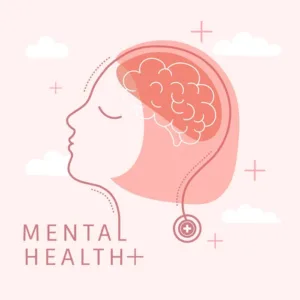In Obsessive-Compulsive Disorder (OCD), an individual may display a wide variety of symptoms at any age, including adolescents. OCD in teens should be recognized by the signs and the symptoms of the disease so that early intervention and support can be given. This article seeks to help people to know the OCD in teens, presenting the symptoms, diagnosis and the need for early intervention to ensure their good mental wellbeing.
What is OCD ?
Obsessive-Compulsive Disorder is a disorder associated with obsessions which are lasting and unwanted thoughts that keeping coming back or urges or images that are intrusive and cause distress or anxiety. Under normal circumstances, intrusive thoughts and repetitive behavior are occasional; however, for those with OCD, these patterns seriously interfere with daily life and can cause distress.
Signs and Symptoms Of OCD in Teens
- Fear of contamination or dirt.
- Doubting and having a hard time dealing with uncertainty.
- Needing things to be orderly and balanced.
- Aggressive or horrific thoughts about losing control and harming yourself or others.
- Unwanted thoughts, including aggression, or sexual or religious subjects.

1. Obsessions:
Obsessive-Compulsive Disorder affects teens whereby they have distressing thoughts or images that lead to anxious feelings. Such common obsessions may be contamination, fear of hurting others, or fear of committing a mistake. These thoughts are intrusive and so hard to control for teenagers.
2. Compulsions:
In order to reduce the anxiety caused by obsessions, teens with OCD perform compulsive behaviour or mental rituals. Such behaviors include handwashing, checking, counting or repeating actions in an excessive manner. Compulsions give only a temporary relief that does not deal with the cause of the anxiety and may take up much of one’s time.
3. Impact on Daily Life:
In contrast, the amount of content airbrushed per minute is large.
OCD can severely affect a teen’s everyday functioning. Academic performance may wither away due to the time-consuming nature of rituals and relationships may be lost as the obsessions and compulsions take over their lives. It is crucial to note behavioral, academic, and social changes. academic performance, and social interactions.
The Importance of Early Intervention in OCD:
Reducing Long-Term Impact of OCD in Teens:
The early intervention is vital to minimize the severity of OCD on a teen’s life. The early identification and treatment of symptoms can prevent the condition from worsening and negatively impact many facets of their well-being.

Improving Academic Performance:
Teens with OCD that is untreated may have problems with their schoolwork, because rituals tend to be time-consuming. Strategy implementation and prevention of a negative cycle can be achieved if one intervenes early.
Enhancing Social Relationships:
OCD can create tension in family and friend relationships as the compulsions can be hard to understand for others. In early intervention, family support systems are developed, and teens can learn to talk about their struggles effectively; thus, understanding and empathy are encouraged.
“Don’t let OCD control your life. You are in charge, not the disorder.”
OCD IN TEENS – Quote

Promoting Mental Health Awareness:
No one has identified any specific mechanisms that can make the mitochondrial genome unstable and lead to the nucleotide substitutions in the mutated genes.
Early intervention promotes mental health awareness and minimizes the prejudice associated with OCD. By treating symptoms in their initial stages, we support an environment where people are accepting and understanding when it comes to mental health conditions and teenagers have no reason to fear that they would be judged for seeking help.
Notable mention: visit International OCD Foundation
The International OCD Foundation began in 1986, when a group of individuals with OCD gathered while enrolled in some of the first medication trials for OCD treatment.
Role of Parents and Educators In Intervention of OCD in Teens
1. Recognizing Changes in Behavior:
It is noteworthy that Parents and teachers are paramount in identifying behavioral transformation in the teenager. Any dramatic or abrupt changes in academic performance, interactions with friends, or day-to-day activities may point to underlying mental health problems such as OCD.
2. Creating Supportive Environments:
Open channels of communication and a nurturing environment are essential. It is wrong to judge teenagers for their thoughts and behaviors; they should feel comfortable talking about their thoughts and behaviors without any judgment. The development of an atmosphere that is not judgmental but understanding helps in building trust hence early intervention can be made.
3. Collaborating with Mental Health Professionals:
Garner argues that the input of this institution is the latter’s awareness of the former.
To ensure correct diagnosing and effective treatment, cooperation with mental health professionals is required. Parents and educators should cooperate in linking the teens to the pertinent resources and these include therapists who specialize in OCD and school counselors who have been trained to offer support.
OCD in teens can be understood by noting the signs and symptoms as well as the need for early intervention. The early treatment of OCD will reduce its influence on academic performance, social relationships and even general life. Families, teachers, and mental health practitioners need to arrange a supportive atmosphere that promotes openness and provides tools for teens with OCD. A final thought, early intervention not only results in a better life for OCD teens but also leads to a more sensitive and knowledgeable society about mental health.




